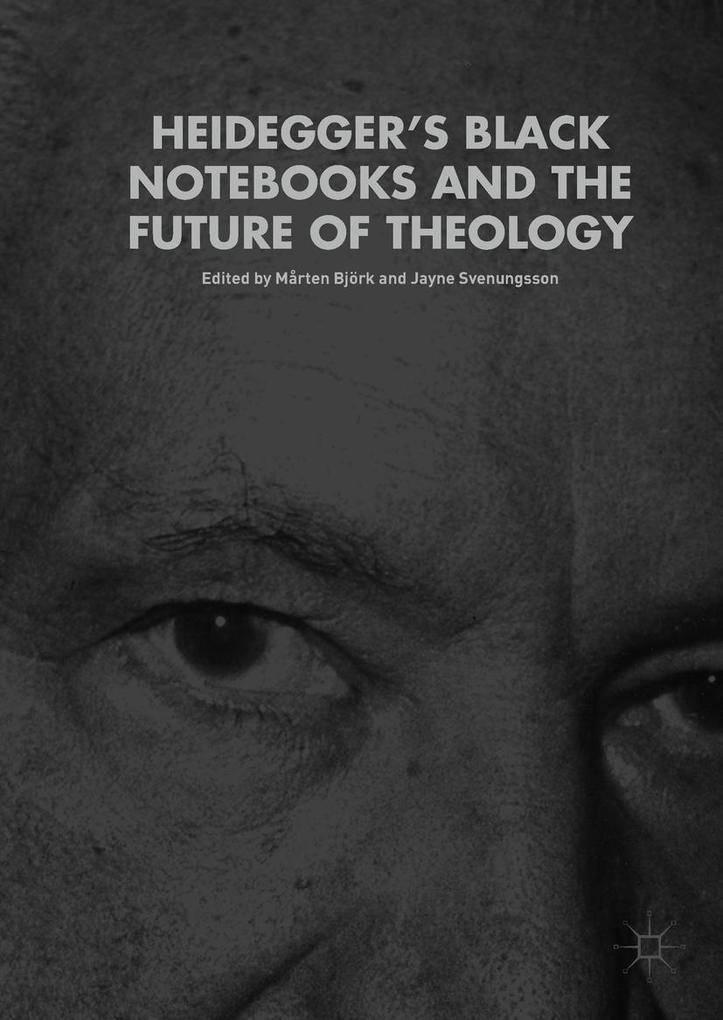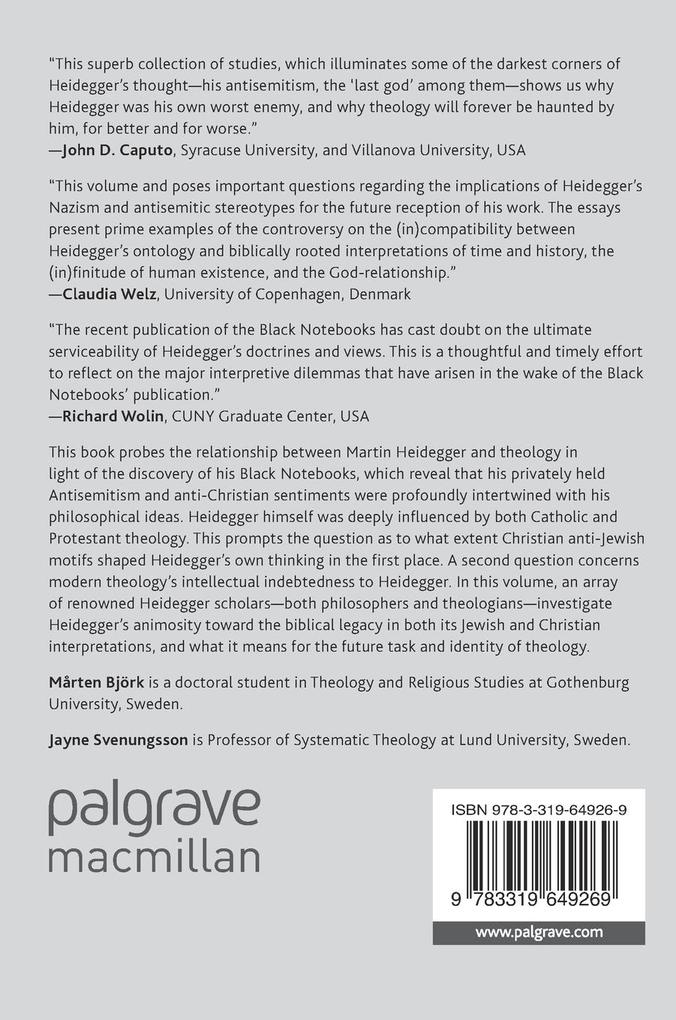This book probes the relationship between Martin Heidegger and theology in light of the discovery of his Black Notebooks, which reveal that his privately held Antisemitism and anti-Christian sentiments were profoundly intertwined with his philosophical ideas. Heidegger himself was deeply influenced by both Catholic and Protestant theology. This prompts the question as to what extent Christian anti-Jewish motifs shaped Heidegger's own thinking in the first place. A second question concerns modern theology's intellectual indebtedness to Heidegger. In this volume, an array of renowned Heidegger scholars - both philosophers and theologians -investigate Heidegger's animosity toward the biblical legacy in both its Jewish and Christian interpretations, and what it means for the future task and identity of theology.
Inhaltsverzeichnis
1: Introduction: Heidegger and Theology after the Black Notebooks. - 2: Religion in the Black Notebooks: Overview and Analysis. - 3: In the Spirit of Paul: Thinking the Hebraic Inheritance (Heidegger, Bultmann, Jonas). - 4: Why Heidegger Didn t Like Catholic Theology: The Case of Romano Guardini. - 5: Anarchist Singularities or Proprietorial Resentments? On the Christian Problem in Heidegger s Notebooks of the 1930s. - 6: Monotheism as a Metapolitical Problem: Heidegger s War against Jewish Christian Monotheism. - 7: Love Strong as Death: Jews against Heidegger (On the Issue of Finitude). - 8: Apocalypse and the History of Being. - 9: Gottwesen and the De-Divinization of the Last God: Heidegger s Meditation on the Strange and Incalculable. - 10: Confessions and Considerations: Heidegger s Early Black Notebooks and his Lecture on Augustine s Theory of Time. - 11: The Irritability of Being: Martin Heidegger, Hans Driesch and the Future of Theology.











